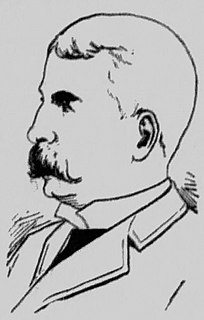A Quote by Andrew Coyle Bradley
Shakespeare very rarely makes the least attempt to surprise by his catastrophes. They are felt to be inevitable, though the precise way in which they will be brought about is not, of course, foreseen.
Related Quotes
He felt as though he were failing in practically every area of his life. Lately, happiness seemed as distant and unattainable to him as space travel. He hadn't always felt this way. There had been a long period of time during which he remembered being very happy. But things change. People change. Change was one of the inevitable laws of nature, exacting its toll on people's lives. Mistakes are made, regrets form, and all that was left were repercussions that made something as simple as rising from the bed seem almost laborious.
A great dread fell on him, as if he was awaiting the pronouncement of some doom that he had long foreseen and vainly hoped might after all never be spoken. An overwhelming longing to rest and remain at peace by Bilbo's side in Rivendell filled all his heart. At last with an effort he spoke, and wondered to hear his own words, as if some other will was using his small voice. "I will take the Ring," he said, "though I do not know the way.
I admire David Hare as much as I admire certainly any writer ever. What I like about his writing is it is very conscientiously, in one way, an attempt to reproduce the way people actually speak, but it's not just an attempt at naturalism. It's stylised and it's heightened, to great effect. It's elegant and it's funny and that's the way to my heart, frankly.
My biggest disappointment was, of course, the coup attempts, ... The economy was proceeding very well, but in 1989 we had the most serious coup attempt and ... many of the investors who were set to come here had to tell me that they chose to go to other countries because of the uncertainty brought about by (the coup attempt.) If that had not happened, I'm sure our economy would just be booming today.
In a very literal way, of course, Shakespeare did change the course of history: when it didn't fit the plot he had in mind, he simply rewrote it. His English histories play fast and loose with chronology and fact to achieve the desired dramatic effect, re-ordering history even as it was then understood.
The talker has found a hearer but not a listener; and though he may talk his very best for his own sake, you will find that his mental movements are erratic: they have no fixed centre and no definite object. His talk is like the water of a canal whose banks have given way, which rolls aimlessly hither and thither, without fulfilling any useful function, though it is the same water which was so helpful and serviceable, when it was confined within clearly marked limits by the restraining force of its earthy boundaries.


































